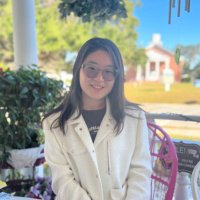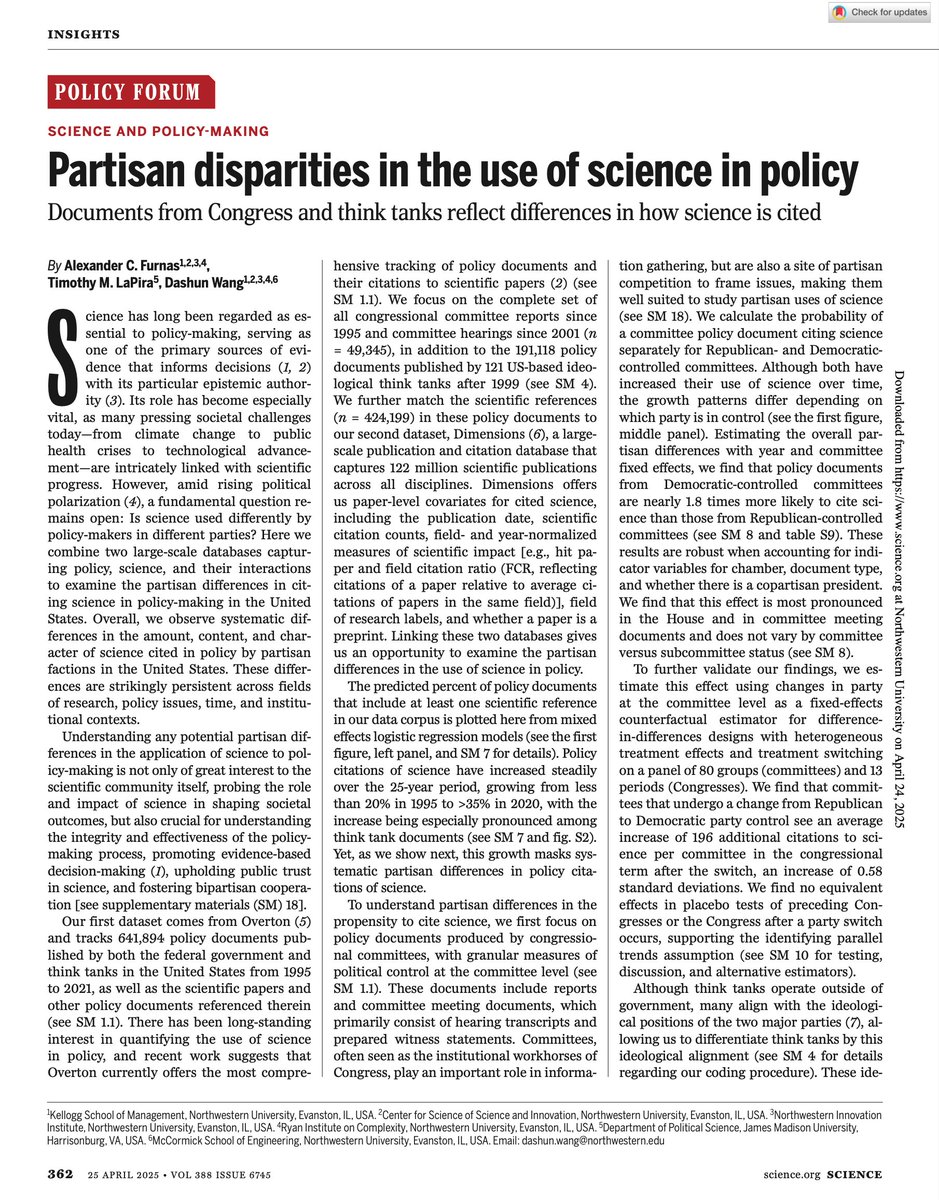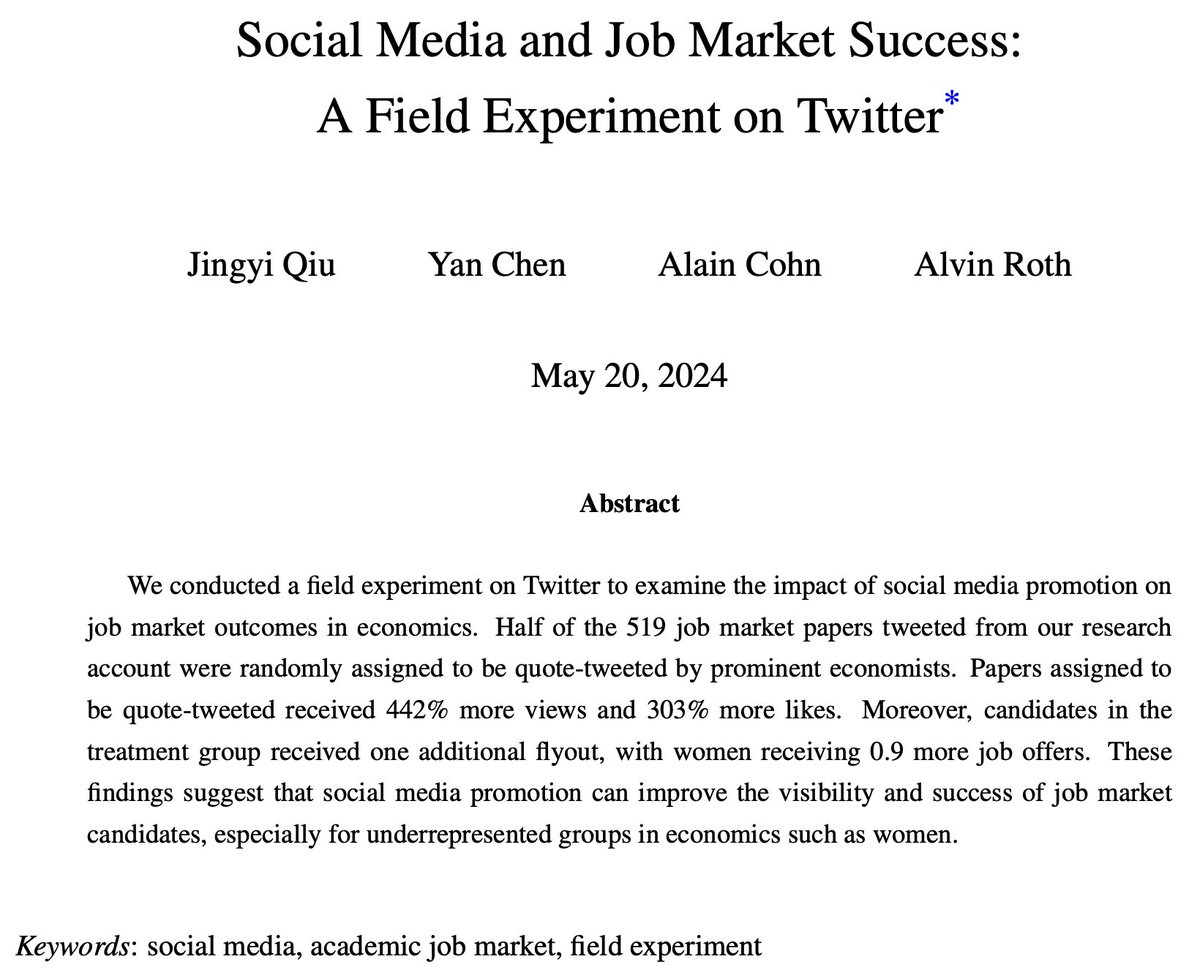
Hong Chen
@_hong_chen
PhD student at 〽️ichigan @UMSI | Computational Social Science | Science of Science
ID: 1653422940560703489
http://hongcchen.com 02-05-2023 15:35:53
44 Tweet
279 Followers
790 Following

I always wondered how science journalists choose to describe scientists (mention name? institution?) Work led by Hao Peng (and David Jurgens is now on BlueSky only & me) studies this at scale: Journalists less likely to mention scientist's name if name not Anglo direct.mit.edu/qss/article/do…

😍Much revised and improved paper by James M. Zumel Dumlao has arrived Question: How does geographical diversity of idea evaluators affect the success of idea producers? Using (amazing) peer review data from IOP Publishing , we find... (1/3) Link: osf.io/preprints/soca…


🎉New paper by Sidney Xiang 🎉 Conventional wisdom is that interdisciplinary research is great intellectually, but penalized in institutional evaluations like peer review. We show that this wisdom isn't quite right/complete... (1/4) papers.ssrn.com/sol3/papers.cf…






My new PNAS paper with Daniel Romero ! 😎 With open data everywhere, how can we creatively unlock its potential for impactful innovation? We show that unusual combinations of datasets lead to more impactful discoveries, yet even simple combos remain rare. pnas.org/doi/10.1073/pn…




How do scientists choose which topic to study? Studies of this are dispersed across fields, and it's surprisingly hard to find a review. Fortunately Sidney Xiang has written a fantastic one, focusing on literature in economics and sociology (link in next comment)


🚨 Our latest paper is out today in Science! We uncover stark and systematic partisan differences in the amount, content, and character of science used in policy, which mirror differences in political elites’ trust in science. Four years in the making. Led by Zander Furnas 1/n



Conventional wisdom says interdisciplinary research is valuable but harder to get through peer review (need to please diverse reviewers, etc). In new PNASNews paper, Sidney Xiang Daniel Romero and I partnered with IOP Publishing to test this wisdom and add nuance (1/3)


![Lechen Zhang (@leczhang) on Twitter photo [1/13] LLMs are increasingly skilled at mimicking human agents in social settings, but have they truly developed a consistent personality? Check out our work accepted to #NAACL2024 where we question the reliability of persona tests applied to LLMs.
Arxiv: arxiv.org/abs/2311.09718 [1/13] LLMs are increasingly skilled at mimicking human agents in social settings, but have they truly developed a consistent personality? Check out our work accepted to #NAACL2024 where we question the reliability of persona tests applied to LLMs.
Arxiv: arxiv.org/abs/2311.09718](https://pbs.twimg.com/media/GPaSoUKaEAQ0Fqg.jpg)
![Science of Science (@mishateplitskiy) on Twitter photo Disco[very] Lab in action!
And a bittersweet send off for the newly-minted professor Inna Smirnova 🥲 Disco[very] Lab in action!
And a bittersweet send off for the newly-minted professor Inna Smirnova 🥲](https://pbs.twimg.com/media/GqETr7_XcAAmIhU.jpg)